Invited Speakers
Keynote Speakers
- Prof. John Rogers, Northwestern University, Evanston, Illinois, USA

John A. Rogers began his career at Bell Laboratories as a Member of Technical Staff in the Condensed Matter Physics Research Department in 1997, and served as Director from the end of 2000 to 2002. He then spent thirteen years at the University of Illinois, as the Swanlund Chair Professor and Director of the Seitz Materials Research Laboratory. In 2016, he joined Northwestern University as the Simpson/Querrey Professor, where he is also Director of the Institute for Bioelectronics. He has co-authored nearly 1000 papers and he is co-inventor on more than 100 patents. His research has been recognized by many awards, including a MacArthur Fellowship (2009), the Lemelson-MIT Prize (2011), the Smithsonian Award for American Ingenuity in the Physical Sciences (2013), the Benjamin Franklin Medal (2019), a Guggenheim Fellowship (2021), the James Prize from the NAS (2022) and the IEEE Biomedical Engineering Award (2024). He is a member of the National Academy of Engineering, the National Academy of Sciences, the National Academy of Medicine and the American Academy of Arts and Sciences.
- Dr. Mario Caironi, Italian Institute of Technology (IIT), Milan, Italy
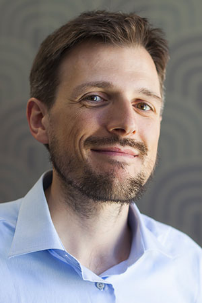
Mario Caironi is an electronic engineer with a Ph.D. in Information Technology obtained with honours at Politecnico di Milano (Milan, Italy). In 2007 he joined the group of Prof. Sirringhaus at the Cavendish Lab. (Cambridge, UK) as a post-doc, working for 3 years on high resolution printing of downscaled organic transistors and circuits, and on charge transport in high mobility polymers. In 2010 he was appointed as Team Leader at the Center for Nano Science and Technology@PoliMi (CNST) of the Istituto Italiano di Tecnologia (IIT, Milan, Italy). In 2014 he entered the tenure track at the same institution, obtaining tenure in 2019. He is currently interested in printed and sustainable microelectronics, edible electronics and printed organic biosensors. He is a 2014 ERC Starting grantee and a 2019 ERC Consolidator grantee. Currently he is the coordinator of the project GRETA, funded within the EIC Pathfinder Challenge on Responsible Electronics , and aimed at enabling green, organic and printed ultra-high frequency electronics.
- Dr. Samuel Sánchez Ordóñez, Institute for Bioengineering of Catalonia (IBEC), Barcelona, Spain

Samuel Sánchez Ordóñez is ICREA Research Professor, Group Leader and Deputy Director at the Institute for Bioengineering of Catalonia, Spain. Samuel has had an international career in different research centers between Japan and Germany. Samuel received several awards (among others): The MIT TR35 Top Innovator Under 35 2014, the Princess of Girona Scientific Award 2015 and the National Research Award for Young Talent 2016, the “Scientific Excellence award 2022” from the Spanish Royal Society of Chemistry, the Banco Sabadell Foundation award for “Basic Science and Engineering award” 2022, and the “Constantes y Vitales Award” to the “Young Talent in Biomedicine”. He is elected member of the Young Academy of Spain since 2020. His group’s main interests are new types of advanced robotics from nano- to mesoscale, including self-propelled nanoparticles as intelligent vehicles in biomedicine to the 3D Bioengineering of biohybrid robots and actuators. He is also cofounder, CSO and CEO-interim- of the spin off Nanobots therapeutics SL.
- Prof. Luisa Petti, Free University of Bozen, Bolzano, Italy
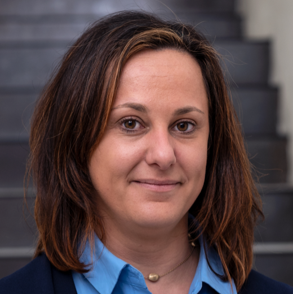
Luisa Petti received her M.Sc. in Electronic Engineering from Politecnico di Milano (Italy) in 2011. She obtained her Ph.D. in Electrical Engineering from ETH Zurich (Switzerland) in 2016 with a thesis entitled “Metal oxide semiconductor thin-film transistors for flexible electronics”, for which she won the ETH medal. After a short post-doc at ETH Zurich, she joined first Cambridge Display Technology Ltd in October 2016 and then FlexEnable Ltd in December 2017 in Cambridge, UK as a Scientist. In 2018 she joined the Free University of Bozen-Bolzano, where she is Associate Professor in Electronics since March 2021. Luisa’s current research includes the design, fabrication and characterization of flexible and printable sensors, energy harvesters, and thin-film devices and circuits, with a focus on sustainable and low-cost materials and manufacturing processes. Luisa serves as member of the IEEE-EDS board of governors and is Associate Editor-in-Chief of IEEE Journal on Flexible Electronics and Associate Editor of IEEE Transactions on Agrifood Electronics.
Invited Speakers
- Prof. Erika Scavetta, University of Bologna, Bologna, Italy
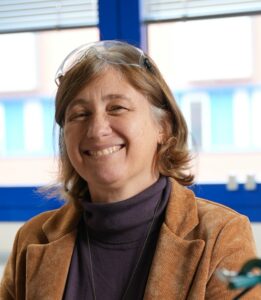
Erika Scavetta is Full Professor of Analytical Chemistry at the University of Bologna since November 2020. The main research activity is the development of electrochemical sensors based on inorganic functional materials or conducting polymers. She’s currently focusing her research in the development of wearable and textile devices to be employed for the analysis of saliva, sweat and wound exudate. She is author of more than 125 papers on international Journal (h index=39), 3 international patents and more than 50 contributions presented at national and international conferences (four invited contributions). She is currently scientific coordinator of two research contracts with national (Plastood SpA) and international (DSM Nutritional products) companies aimed at the development of smart medical devices for wounds monitoring and at the detection of lipophilic vitamins in food. She is currently coordinator of two national research projects, the first financed by the Italian ministry of economic development (POC MISE: MIRAGE) and the second by the Italian Ministry of Education, University and Research (PRIN: Glucomfort).
- Dr. Maria Guix Noguera, University of Barcelona, Barcelona, Spain
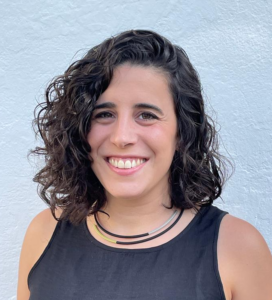
Maria Guix received her PhD in Chemistry, M.S. degree in Nanotechnology and B.Sc. degree in Chemistry from the Universitat Autònoma de Barcelona (UAB). During her PhD she worked in the Prof. Merkoçi’s group at Catalan Institute of Nanoscience and Nanotechnology (ICN2), working on the interaction of nanomaterials in biosensing platforms. As a PhD candidate, she did two short internships related to the development of catalytic nanomotors, first in EMPA (Switzerland) and then in the University of California San Diego (USA) under the supervision of Prof. Joseph Wang. She later joined Prof. Oliver Schmidt’s group as a postdoctoral researcher at IFW Dresden, developing biocompatible micromotors for biomedical applications. Afterwards, she moved to Purdue University to work on the automation of magnetic microrobots for safe manipulation tasks by using visual-based control methods. After her postdoctoral stage at the Institute for Bioengineering of Catalonia (IBEC) at Prof. Samuel Sánchez’ group working in the development of advanced functional living robots, she just joined in a tenure track position the University of Barcelona at the ChemInFlow group. She is currently focused on the miniaturization of living robots by exploiting microfluidic devices, seeking also the integration of flexible sensors in such platforms for a better understanding of the undergoing biological events.
- Prof. Carlo A. Bortolotti, University of Modena and Reggio Emilia, Modena, Italy
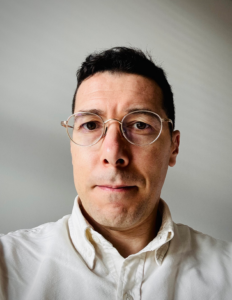
Carlo Augusto Bortolotti received a PhD in Chemistry in 2006 with a thesis on engineered redox metalloproteins for nanobiotechnological applications. He was post-doc at the National Research Council (CNR-INFM) center S3 and has been assistant professor of Physical Chemistry at the University of Modena and Reggio Emilia from 2008 to 2020. He is currently Associate Professor at the same University. His main research interests concern the design of bio-inorganic interfaces for nanotechnological applications (focus on biosensing) by combined use of organic electronics, surface chemistry, production of recombinant proteins, electrochemistry. He coordinated the H2020-MSCA- ITN- ETN project “Biosensing with ORGanic ElectronicS” BORGES and is co-Spoke Leader of Spoke 6 “Healthy Toolbox” in the PNRR project Heal Italia on Precision Medicine. Moreover, he was involved, as PI and task leader, in several European and National projects.
- Dr. Virgilio Mattoli, Italian Institute of Technology (IIT), Pontedera (Pisa), Italy
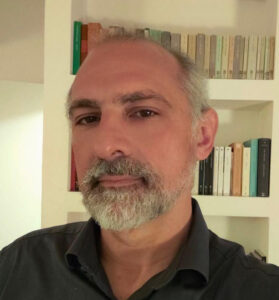
Virgilio Mattoli received his laurea degree in chemistry (cum laude) from the University of Pisa and the diploma in chemistry from the Scuola Normale Superiore in 2000. In 2005 he received his PhD in bio-engineering (cum laude) from Scuola Superiore Sant’Anna. In 2004 he was short term visiting researcher at Stanford University and in 2005 and 2008 at Waseda University. From June 2008 to October 2009 he obtained a temporary position of Assistant Professor of bioengineering at the Scuola Superiore Sant’Anna (SSSA). From 2009 he works at the Center for Materials Interfaces of the Istituto Italiano di Tecnologia, focusing his research on smart/functional materials, first as Team Leader and then as permanent Researcher Technologist. His research interests include: smart nano- and bio-inspired materials, soft electronics, sensors, micro/nano-fabrication technologies, and biorobotics. He is currently involved in several research projects on these topics, including the EU FET Project 5D NanoPrinting and the EU EIC challenge project IV-Lab, of which he is the coordinator. He is (co)author of about 180 journal papers and more than 50 invited talks.
- Prof. Leonardo Ricotti, Scuola Superiore Sant’Anna, Pisa, Italy
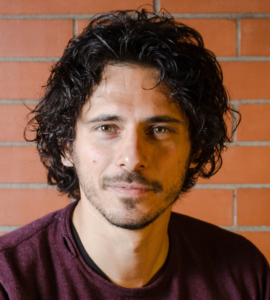
Leonardo Ricotti is a Full Professor of Bioengineering and head of the Regenerative Technologies Lab at the BioRobotics Institute, Scuola Superiore Sant’Anna (Pisa, Italy). He leads an interdisciplinary research group of approximately 30 members engaged in multiple national and international projects (www.regenerativelab.it). He also coordinates the Joint Lab on Biostimulation and Function Recovery, a collaboration between Scuola Superiore Sant’Anna and the Auxilium Vitae Rehabilitation Center (Volterra, Italy). His research focuses on regenerative medicine and artificial organs. He has co-authored around 170 scientific publications, contributed six book chapters on biomedical technologies, and he is the inventor of 20 patents. As an entrepreneur, he co-founded and serves as Chief Scientific Officer (CSO) of two spin-off companies: Relief s.r.l. and MyEcho s.r.l. Prof. Ricotti is an Associate Editor for Scientific Reports, IEEE Transactions on Medical Robotics and Bionics, and IEEE Transactions on NanoBioscience. He has received several awards for both his research (e.g., Nanomaterials 2022 Young Investigator Award, European Biomaterials and Tissue Engineering Doctoral Award, “Massimo Grattarola” Award) and entrepreneurial achievements (e.g., PNICube Award, Lifebility Award, Starttime prize).
- Dr. Adrica Kyndiah, Italian Institute of Technology (IIT), Milano, Italy
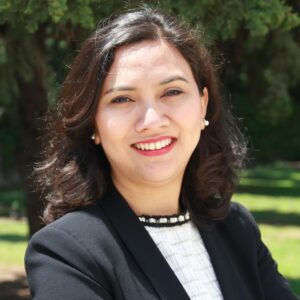
Adrica Kyndiah is a researcher at the Istituto Italiano di Tecnologia (IIT), where she leads activities in biosensors and bioelectronics within the Printed and Molecular Electronics group. She holds a B.Sc. and M.Sc. in Physics from North Eastern Hill University, Shillong, India, and earned her PhD in Chemistry from the Università di Bologna in 2015. Her doctoral work, carried out at CNR Bologna, focused on charge transport and interfacial properties in organic field-effect transistors. She pursued postdoctoral research in France at CEA Grenoble and CNRS Bordeaux, before moving to IBEC Barcelona in 2017 as a Marie Curie Cofund fellow. There, she launched a new research line in organic-bioelectronics and acted as Co-PI of the Marie Curie ITN project BORGES. Her interdisciplinary research integrates organic electronics, materials science, and bioengineering to develop non-invasive, high-resolution platforms for monitoring cellular activity. These technologies hold strong potential for diagnostics and drug screening. She is currently the coordinator and PI of RHYTHMiC, a national project funded under the bando a cascata of the PNC (Piano Nazionale per gli Investimenti Complementari), focused on advancing bioelectronic technologies for biomedical applications. She actively collaborates across disciplines and publishes regularly in high-impact journals.
- Prof. Francesco Greco, Scuola Superiore Sant’Anna, Pisa, Italy

Francesco Greco is an Associate Professor at the Biorobotics Institute of Scuola Superiore Sant’Anna (SSSA), Pisa since 2021 and Head of the Laboratory of Applied Materials for Printed and Soft Electronics. Formerly, he has been Assistant Professor at Institute of Solid State Physics – TUGraz (Austria), Associate Professor at School of Advanced Science and Engineering, Waseda University, Tokyo (Japan), appointed by the Top Global University Program, Unit for Energy and Nanomaterials, JAPAN. He was a Postdoc and then Researcher (Team Leader) at Center for MicroBiorobotics of Istituto Italiano di Tecnologia (CMBR IIT). He received a MSc in Materials Science (with honours) in 2004 and Ph.D. in Chemical Sciences in 2009 from the University of Pisa, Italy. His research focuses on functional polymer and composite materials with applications in organic bioelectronics, biomedicine, soft- and bio-robotics, sensors, within 2 main themes: 1) Tattoo Electronics and 2) Laser Induced Graphene . He has relevant experience as PI in several European, National, Regional and Industry-funded projects and as academic consultant for advanced polymer materials and electromedical devices. He is the (co)author of ~ 80 peer-reviewed full papers, 4 book chapters and coinventor of 8 international patents/patents applications.
- Dr. Maria Rosa Antognazza, Italian Institute of Technology (IIT), Milan, Italy
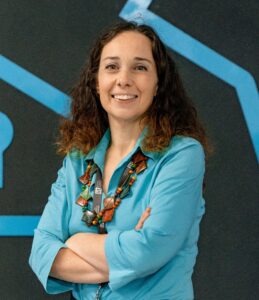
Maria Rosa Antognazza is permanent researcher at the Center for Nano Science and Technology, IIT, Italy. Physicist by background, she holds internationally recognized expertise in bioelectronics, and in particular in organic biotechnology. She was among the pioneers in the field of photoceutics, by proposing the synergistic use of organic semiconductors and light stimulation in both neural and cardiac applications. In her research activity, she carried out extensive characterization of biohybrid interfaces by optical, electronic, photo-electrochemical, ion imaging and electrophysiology techniques. Her current research interests focus on the development of devices for spatio-temporally controlled modulation of the living cells’ fate and metabolism, at the sub-cell level. She was awarded with the ERC-Starting Grant (LINCE), and she coordinated several European and national collaborative, cross disciplinary projects. She serves as Editor for Communication Materials (Nature Publishing Group) and Frontiers in Biosensors and Biotechnology. She published >90 papers in high-impact journals, about 3.5K citations, 4 patents, >70 invited talks at international conferences and workshops.
- Prof. Francesca Santoro, Forschungszentrum Juelich and Faculty of Electrical Engineering and IT, RWTH Aachen, Germany

Francesca Santoro, born in Naples in 1986, is a biomedical engineer specializing in neuroelectronics. She earned her Bachelor’s and Master’s degrees in Biomedical Engineering at the University of Naples Federico II, followed by a PhD from RWTH Aachen and Forschungszentrum Juelich in 2014. After a postdoctoral fellowship at Stanford University, she founded the Tissue Electronics Lab at the Istituto Italiano di Tecnologia. Currently, she is Full Professor and Head of the Neuroelectronic Interfaces Lab at RWTH Aachen and Forschungszentrum Juelich. Her awards include the MIT Technology Review Under 35 Europe and Italy (2018), an ERC Starting Grant (2020), the Falling Walls Breakthrough Award, and early career recognition from the German National Academy of Sciences Leopoldina. She has published over 75 peer-reviewed articles and delivered more than 50 talks at major international conferences.
- Prof. Giorgio E. Bonacchini, University of Padova, Padova, Italy
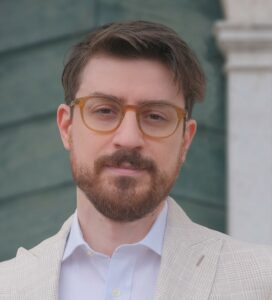
Giorgio E. Bonacchini is Associate Professor in Electronics at the Department of Information Engineering of the University of Padua. He studied Electronics Engineering and Nuclear Engineering at Politecnico di Milano, with a research thesis on graphene photonics at the University of Cambridge in the group of A.C. Ferrari. In 2018, he received a PhD in Physics from PoliMi, working with M. Caironi and G. Lanzani at the Center for Nano Science and Technology (Istituto Italiano di Tecnologia). His research activities focused on the investigation of the electronic transport properties of exotic materials, on the realization of printed edible electronic devices, and on cell-sensing platforms based on carbon nanotubes. After the PhD, he became a post-doc in the group of F. Omenetto at Tufts University (2018-2020), where he demonstrated the first microwave metadevice based on organic semiconductors. In July 2020, he joined the Salleo Group at Stanford University as a Marie Skłodowska-Curie Actions Global Fellow, where he focused on the realization of untethered biosensing platforms based on tunable microwave systems. In 2022, he returned to the Istituto Italiano di Tecnologia as a Researcher, where he studied the applicability of organic electronic materials in microwave and terahertz applications. In 2023, he was awarded an ERC StG for the project “Microwave Metadevices based on Electrically Tunable organic Ion-electron Conductors – MiMETIC”, which aims at further exploring the use of unconventional semiconductors in microwave technologies.
- Prof. Erica Zeglio , Stockholm University, Stockholm, Sweden
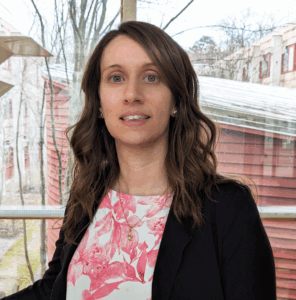
Erica Zeglio is an Assistant Professor at the Department of Chemistry, Stockholm University, and a Team Leader at AIMES – Center for the Advancement of Integrated Medical and Engineering Sciences at Karolinska Institute. She obtained her PhD from Linköping University in 2016 and pursued postdoctoral research in Australia at the University of Wollongong and UNSW Sydney. She later worked as a senior researcher and Marie Skłodowska-Curie Fellow in HerlandLab at KTH Royal Institute of Technology. In 2023, she established her own research group as a Fellow within WISE, Sweden’s largest initiative in materials science for sustainability. Her research focuses on sustainable organic bioelectronics, developing functional, biodegradable, and environmentally responsible materials and devices for applications in biosensing and electrophysiological monitoring. Her work is supported by national grants from FORMAS, the Knut and Alice Wallenberg Foundation, and the Swedish Research Council.
- Prof. Ingrid Graz, Johannes Kepler University, Linz, Austria
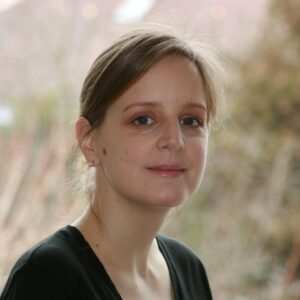
Ingrid Graz received her PhD in Physics from Johannes Kepler University Linz, Austria, where she focused on flexible ferroelectret pressure sensors for thin-film transistors. After a postdoctoral stay in Jena, Germany, she worked for three years on stretchable electronics in collaboration with Nokia at the Department of Engineering, University of Cambridge. She then returned to Johannes Kepler University Linz, where she completed her habilitation on skin-inspired electronics and soft robotic and became an Associate Professor in Soft Matter Physics. From 2020 to 2024, she served as Head of the Christian Doppler Laboratory for Soft Structures for Vibration Damping and Impact Protection. Currently leads a research group focused on soft smart actuators, affiliated with both the School of Education and the Institute for Biophysics. She serves as President of the EuroEAP Society since 2022 and was recently elected Vice-Head of the BioMediCry Core Facility at Johannes Kepler University.